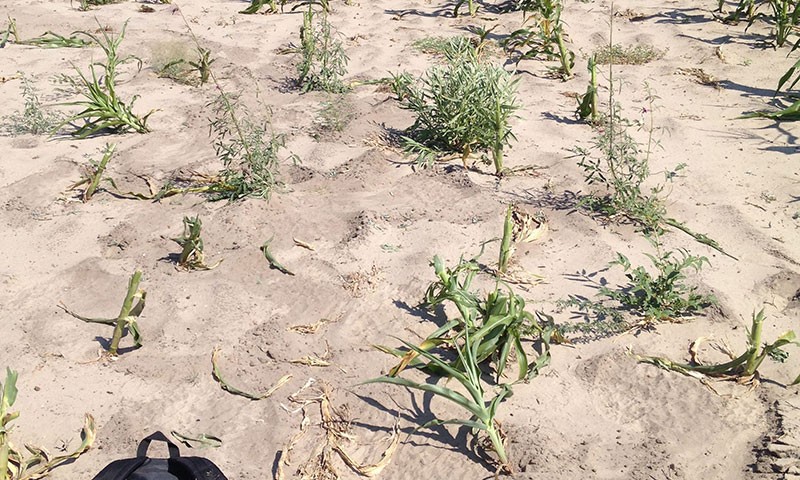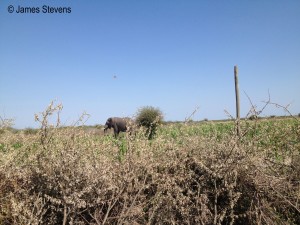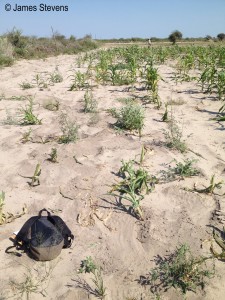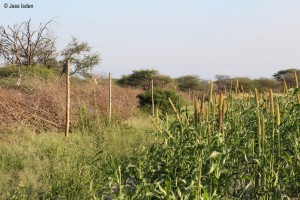The economics of human- elephant conflict mitigation – by Amy Chamberlain
May 27, 2015
Meeting ‘the herd’ by Jess Isden
June 22, 2015Wrapping up farmers and fields – By James Stevens

As we reach the middle of June I am coming to the end of another ploughing season in the Boteti region researching the human-
elephant conflict in the area. This year has been particularly tough for the farmers enrolled on the project. As if it wasn’t bad enough to deal with poor soils and wildlife trying to eat your
crops, farmers here also suffered poor rains this year. This year we have had below average rainfall which has made life difficult for both the agricultural and livestock farmers. Already there were far fewer farmers ploughing their fields due to this reduced rainfall compared to last year.
However, there have still been some farmers that have ploughed on (..sorry) and although there were less fields it has still been a busy year attending crop-raiding incidences. We attended 87 incidences in total. It still appears to be the older male elephants that are crop-raiding and we will look into this further over the coming months having completed two field seasons so far.
One interesting avenue we will be looking into in more detail next year is why these elephants are raiding the fields. We noticed this year that the elephants often appear to spend a fair amount of time wandering around these fields, however, for the distances they travel in the field they are often not carrying out much damage to the crops; it is often limited to trampling damage. We therefore wonder what the benefits of crop-raiding are. Are they just looking for tasty treats such as juicy watermelons and the other crops get in the way? By answering these questions in this region we hope to be able to provide a toolkit to farmers to help them reduce conflict in the region.
Although there have been some difficult periods this year with some farmers being constantly raided and struggling to keep elephants out of their field, there have also been some really positive moments. Last year and even at the beginning of this year it had been quite hard promoting chilli pepper to deter elephants. Some farmers just didn’t think it would work and others had tried but due to errors in its application they were not seeing the expected results. As a team we have continued promoting chilli pepper use and training farmers in the correct application so it has been great this year having some farmers expressing that they think chilli pepper either can work or does work. We have even had some farmers attempting to grow their own chilli. This is a really important step for us because although small, seeds have been sown (…again sorry) and it is a move in the right direction towards reducing conflict for farmers.
This also provides a small clue to EfA’s exciting future project plans which we will be updating you with shortly.



